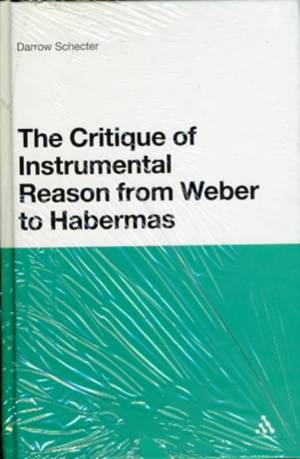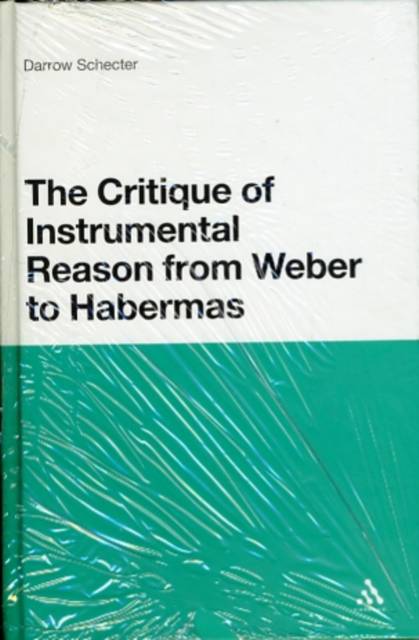
Je cadeautjes zeker op tijd in huis hebben voor de feestdagen? Kom langs in onze winkels en vind het perfecte geschenk!
- Afhalen na 1 uur in een winkel met voorraad
- Gratis thuislevering in België vanaf € 30
- Ruim aanbod met 7 miljoen producten
Je cadeautjes zeker op tijd in huis hebben voor de feestdagen? Kom langs in onze winkels en vind het perfecte geschenk!
- Afhalen na 1 uur in een winkel met voorraad
- Gratis thuislevering in België vanaf € 30
- Ruim aanbod met 7 miljoen producten
Zoeken
€ 339,45
+ 678 punten
Uitvoering
Omschrijving
This book analyses the critique of instrumental reason from Weber through to the present day. Weber constitutes the starting point because he represents a key moment of theoretical and political transition. Whereas Enlightenment thinkers such as Kant, Rousseau and Hegel had a profound faith in the power of reason to improve society and mankind, Weber signals that far from being a universally positive and progressive force, the institutionalisation of reason might actually be a highly effective tool in the struggle for domination. Schecter charts how Weber's ideas took shape as a response to the works of Nietzsche and Georg Simmel, and how these ideas were taken up by the theorists of the Frankfurt School in their attempts to formulate a critical theory of society, firstly by Horkheimer and Adorno and then later by Habermas in his The Structural Transformation of the Public Sphere. Schecter further explores how Habermas moves away from a Weberian-Marxist version of social theory towards a more optimistic approach based on a linguistic and systems'-theoretical approach in his Theory of Communicative Action. The book also discusses Heidegger's ontological response to the challenge posed by Weber as well as Walter Benjamin's examination of the contradictions inherent in the attempts to produce a just legal system in the absence of substantive rationality and justice.
Specificaties
Betrokkenen
- Auteur(s):
- Uitgeverij:
Inhoud
- Aantal bladzijden:
- 272
- Taal:
- Engels
Eigenschappen
- Productcode (EAN):
- 9780826487711
- Verschijningsdatum:
- 15/05/2010
- Uitvoering:
- Hardcover
- Formaat:
- Ongenaaid / garenloos gebonden
- Afmetingen:
- 157 mm x 231 mm
- Gewicht:
- 589 g

Alleen bij Standaard Boekhandel
+ 678 punten op je klantenkaart van Standaard Boekhandel
Beoordelingen
We publiceren alleen reviews die voldoen aan de voorwaarden voor reviews. Bekijk onze voorwaarden voor reviews.









